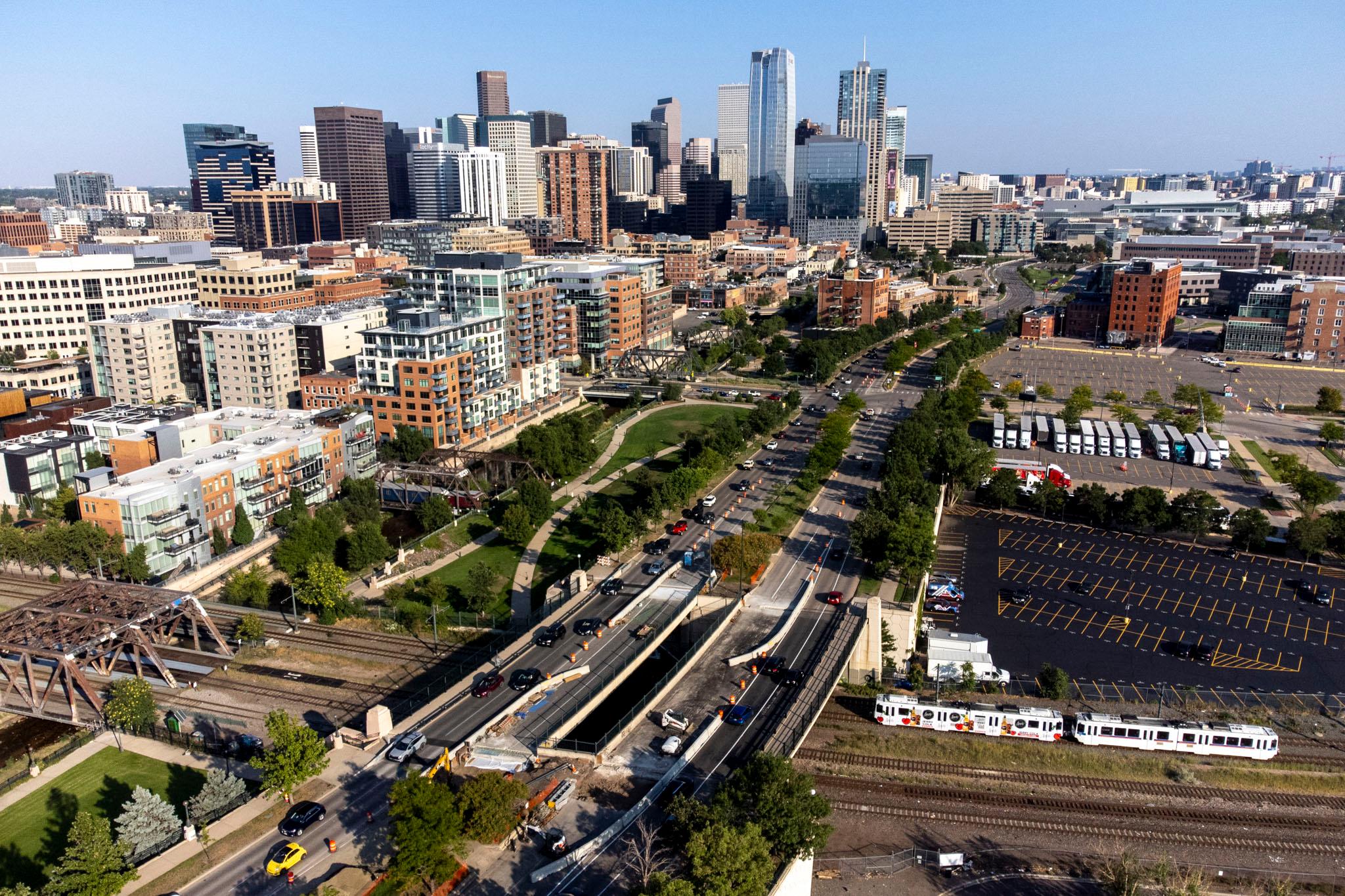Downtown Denver is about to see a significant cash injection.
Roughly 78 percent of voters living near Union Station passed Ballot Measure 6A — a policy that will authorize $570 million of debt for downtown revitalization. Only around 2,500 voters were eligible to decide the matter.
The passage of the measure was a big win for Mayor Mike Johnston.
“The successful expansion of the Downtown Development Authority gives us the resources we need to invest in the transformative projects that will revitalize Downtown Denver,” said Mayor Mike Johnston, in a statement. “The funding will help bring new opportunities for downtown and beyond – from new housing to revitalized public spaces to economic opportunity and growth.”
Meanwhile, the mayor’s proposal for an affordable housing sales tax was narrowly defeated.
A big investment after years of trouble
Kourtny Garrett, head of the Downtown Denver Partnership, views the support of the initiative as a vote of confidence in the future of downtown after a rough few years.
COVID-19 hit downtown hard, as businesses struggled to stay open and office workers opted to do their jobs from home.
Businesses shut their doors. Encampments spread through the city center. And even as the mayor’s housing and enforcement program has pushed those encampments out of downtown, the area’s reputation has taken a hit. Many storefronts and offices remain empty.
The debt will go to the Downtown Development Authority. DDA, launched in 2008, was the city’s chief financing tool for development around Union Station. The authority takes out debt that is paid for with tax revenues from the affected area. The concept is called tax-increment financing. The authority takes money out of sales and property taxes and reinvests it in the area.
The measure did not create any new taxes. Tax rates would have stayed the same whether or not it was approved.
The ballot measure also expanded the reach of the Downtown Denver Development Authority. It now runs from Speer Boulevard to 20th Street, and behind Union Station into Uptown.
What will the Downtown Development Authority do with $570 million?
In the past, the authority used its loans to preserve Union Station, build rail and bus facilities, create public spaces, and finance streets, utilities and parking.
But the new plan will address Denver’s current needs.
The money will help the authority finance both new development and adaptive reuse – turning existing structures into new places. This will include hotels, housing and retail. The authority will help finance the creation of homes for people of varying income levels, including the workforce.
The authority wants to create economic opportunities downtown by developing empty land and creating nicer ground-floor retail. Also in the mix: childcare facilities and other amenities to lure office workers back.
The authority plans to add and upgrade current parks, plazas and playgrounds, plant more trees and bring more green landscaping to the city center.
The money will help boost the downtown cultural scene, museums, theaters and outdoor performance venues. The hope is to create more places for artists to live, work and perform, along with public art installations.
Finally, the money could pay for some wider sidewalks, better lighting and signage and more benches, along with micro-mobility and bike infrastructure, improved transit and better parking.
The authority will exist through 2038 and must pay off all debts by then.
Denver City Council’s Finance and Governance Committee will consider the authority’s plan, including the expansion of the Downtown Denver Authority, on Nov. 19. The public will have a chance to share their thoughts with council on Dec. 9.











